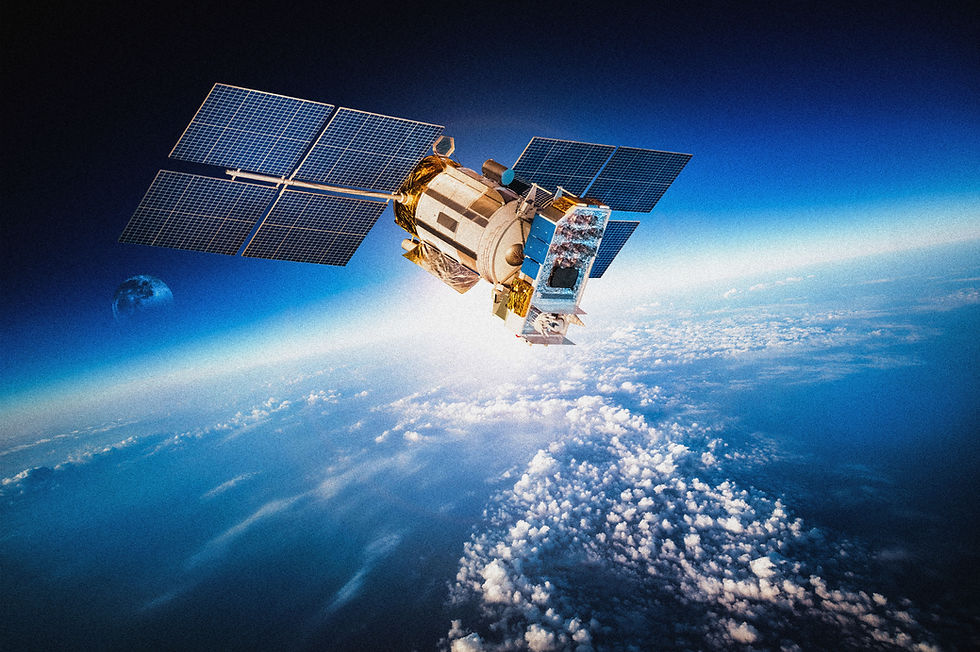The Future of Science and Technology: How Innovations Are Shaping Our World
- JUST JOLLY SERVICE

- Jan 11
- 5 min read

In the ever-evolving world of science and technology, we are witnessing groundbreaking advancements that are transforming our daily lives, industries, and the very way we interact with the world. From Artificial Intelligence (AI) to space exploration, from medical breakthroughs to renewable energy solutions, the future is unfolding rapidly, and it’s an exciting time to be part of it.
In this blog post, we will explore some of the most exciting scientific and technological trends shaping the future, along with how they will impact our lives and the global landscape. Let’s dive in!
1. Artificial Intelligence (AI): The Brainpower of the Future

Artificial Intelligence (AI) has been one of the most talked-about topics in recent years, and for good reason. AI is no longer just a buzzword in tech circles; it’s increasingly becoming a part of our everyday lives. From voice assistants like Siri and Alexa to AI-powered chatbots, this technology is revolutionizing the way we interact with devices, automate processes, and make decisions.
Why It Matters: AI is not only making our lives more convenient, but it's also improving productivity across various sectors such as healthcare, finance, and customer service. It’s enabling businesses to make data-driven decisions, personalizing experiences, and even predicting future trends.
The Future of AI:
Automation: AI will continue to replace repetitive and time-consuming tasks in the workplace, allowing humans to focus on more creative and strategic roles.
AI in Healthcare: AI-powered tools are helping doctors diagnose diseases, develop personalized treatment plans, and predict health outcomes.
AI Ethics and Regulation: As AI becomes more prevalent, the focus on creating ethical frameworks and regulations will be crucial to ensure that AI is used responsibly.
2. Space Exploration: The Final Frontier

Space exploration has long been a fascinating subject, but recent advancements are pushing the boundaries of what was once considered possible. With private companies like SpaceX and Blue Origin leading the way, space travel is becoming more accessible and exciting.
Why It Matters: Space exploration isn’t just about finding new planets or exploring the unknown—it has practical implications for Earth as well. From satellite technology that helps with communication and weather forecasting to the potential for mining asteroids for resources, space exploration could offer solutions to some of Earth’s most pressing problems.
The Future of Space Exploration:
Human Colonies on Mars: SpaceX’s ambitious goal to send humans to Mars by the mid-2020s could lay the groundwork for the first human colony on another planet.
Moon Bases: NASA’s Artemis mission plans to return humans to the Moon by 2024 and eventually establish a sustainable presence there.
Space Tourism: Companies like Blue Origin are working towards making space tourism a reality, opening up space travel to the public.
3. Quantum Computing: The Next Revolution in Technology

Quantum computing is poised to become the next major leap in computing power. Unlike classical computers, which process information in bits (0s and 1s), quantum computers use qubits that can represent and store information in multiple states simultaneously. This allows quantum computers to solve complex problems much faster than classical machines.
Why It Matters: Quantum computing has the potential to revolutionize industries such as cryptography, medicine, logistics, and artificial intelligence. It could lead to breakthroughs in areas such as drug discovery, material science, and climate modeling.
The Future of Quantum Computing:
Cryptography: Quantum computers could potentially break current encryption methods, leading to the need for new, quantum-resistant security protocols.
Drug Discovery: Quantum computing’s immense processing power could simulate molecular interactions at an unprecedented level, accelerating the development of life-saving drugs.
Optimization Problems: Quantum computers could solve complex optimization problems, which could revolutionize industries like transportation, finance, and manufacturing.
4. 5G Technology: The Backbone of the Digital Future

The arrival of 5G is poised to change the way we experience the internet. With speeds up to 100 times faster than 4G, 5G promises to revolutionize everything from communication to gaming, autonomous vehicles, and the Internet of Things (IoT).
Why It Matters: 5G will enable faster internet speeds, reduced latency, and improved connectivity, making it possible for more devices to communicate seamlessly. This will have a transformative effect on industries ranging from healthcare and education to entertainment and transportation.
The Future of 5G:
Smart Cities: With 5G, smart city technologies, including traffic management, waste disposal, and energy management, will become more efficient and interconnected.
Autonomous Vehicles: 5G will enable ultra-reliable, low-latency communication, which is critical for the development of self-driving cars.
Telemedicine: Remote surgeries and real-time health monitoring will become more feasible with the improved connectivity and speed of 5G networks.
5. Renewable Energy: A Sustainable Future

As the world grapples with climate change, renewable energy is playing an increasingly crucial role in shaping the future of our planet. Solar, wind, and hydropower are just some of the renewable sources that are gradually replacing fossil fuels as the primary source of energy.
Why It Matters: The shift to renewable energy is essential for reducing carbon emissions and combating climate change. With advancements in energy storage and grid integration, renewable energy is becoming more reliable, affordable, and scalable, making it possible to power entire cities with clean energy.
The Future of Renewable Energy:
Solar Power: Solar energy is expected to become the most affordable form of energy generation, with solar panels becoming more efficient and easier to install.
Wind Energy: Offshore wind farms are expected to play a significant role in the renewable energy mix, particularly in Europe and coastal regions.
Energy Storage: Advances in battery technology will enable more efficient storage of renewable energy, making it possible to use solar and wind power even when the sun isn’t shining or the wind isn’t blowing.
6. Biotechnology: Healing the Future

Biotechnology is at the forefront of medical advancements, promising new treatments for everything from genetic disorders to cancer. The recent rapid development of COVID-19 vaccines has shown the power of biotechnology to respond to global health crises, but this is just the beginning.
Why It Matters: Biotechnology holds the key to personalized medicine, gene therapy, and innovations in healthcare that could save millions of lives. By unlocking the secrets of our DNA and how our bodies function at the molecular level, scientists can develop more effective treatments and even cures for diseases that were once thought untreatable.
The Future of Biotechnology:
Gene Editing: Techniques like CRISPR allow scientists to edit genes with incredible precision, offering potential cures for genetic diseases.
Regenerative Medicine: Stem cell research and tissue engineering could lead to breakthroughs in regenerative medicine, enabling the growth of new organs and tissues for transplants.
Synthetic Biology: The ability to design and engineer living organisms could lead to innovations in everything from agriculture to biofuels and environmental cleanup.
Conclusion: Embracing the Future
The future of science and technology is nothing short of extraordinary. As AI, space exploration, quantum computing, renewable energy, and biotechnology continue to advance, they promise to reshape our world in ways we never imagined. The opportunities for innovation are limitless, and the pace at which we’re progressing is truly inspiring.
As we look to the future, it’s important to embrace the possibilities, stay curious, and be prepared to adapt to an ever-changing landscape. With the right tools, knowledge, and mindset, we can navigate the exciting road ahead and create a brighter, more sustainable future for all.
Stay tuned—this is only the beginning! 🌟🚀🔬







Comments